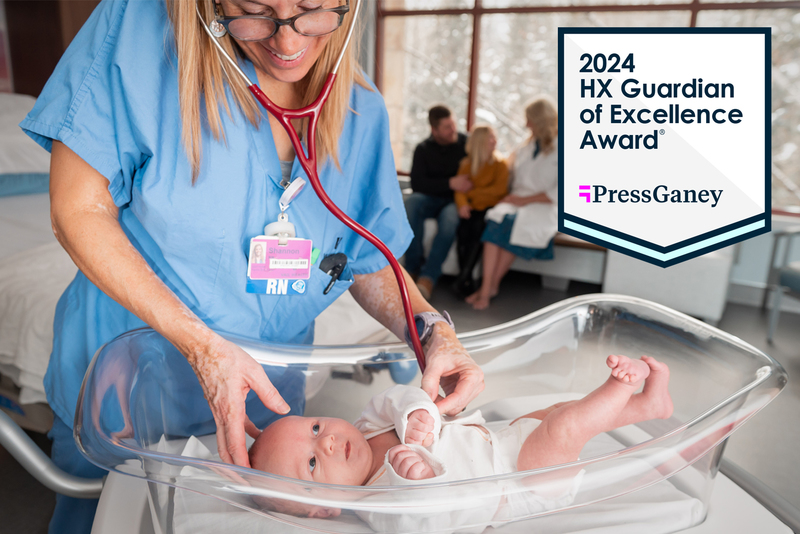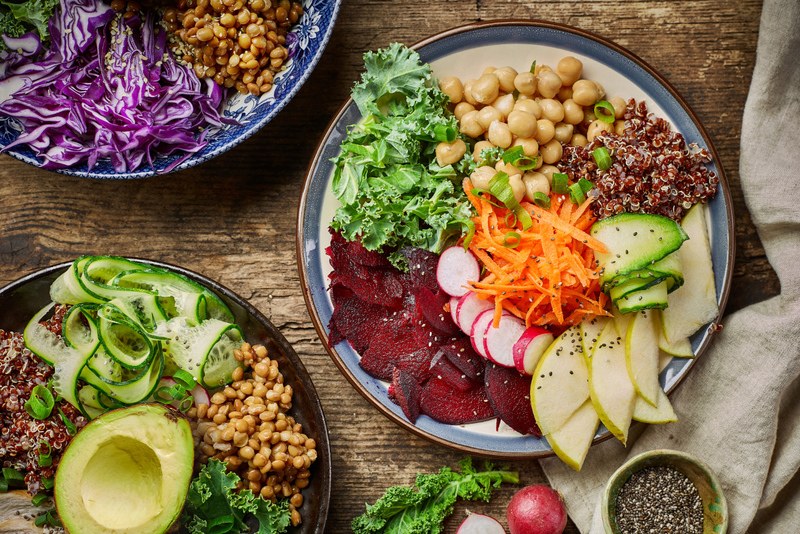News
Longevity for Women with Dr. Eliza Klearman

Below are the notes from Dr. Eliza Klearman's presentation on longevity for women as part of Vail Health's Flourish: A Springtime Celebration of Women's Wellness event. Dr. Klearman's discussion provides education on the exciting topic of longevity for women.
I am kind of obsessed with longevity- I mean aren’t we all? As women, we are the ultimate fighters against the clock- especially when it comes to how we look. We are consumers of all the anti-wrinkle creams, cosmetic injections, hair dyes, and the latest and greatest technologies that help us look younger. I am totally a victim of this. On the flip side of the coin, I am trying very hard to embrace my age, my wisdom, my experiences, my laugh lines, and even my waning fertility. I realize that what is actually important to me is being vibrant, strong, sexy, and healthy. I hope you all share these same values.
The concept of longevity is exciting because it is hopeful and I am here tonight to tell you that we can absolutely age beautifully. Anti-aging is the ultimate preventative medicine- and I am going to talk to you about how we can use our own self-care to prevent the scary things that we associate with old age.
Longevity is not just about living to be as old as possible, it is actually about living as healthy as possible for as long as possible. It is an unfortunate fact that though we are living to an older age, we are spending a longer amount of our time alive with a serious disease that will eventually cause our death. According to the WHO, most adults spend about the last 20% of their lives - for women this equates to 16 years!- with some sort of chronic disease- like cardiovascular disease, cancer, diabetes, neurodegenerative diseases ( like Alzheimer’s and Parkinsons), osteoporosis, autoimmune disease, and all of the other diseases associated with disability and aging in general. Nobody wants this!
We want to work to postpone these chronic diseases, and the prescription drugs, surgical procedures, and poor quality of life that goes along with them. The beautiful thing to know is that we are not predestined for disease. Although our genetics do play a role in the development of disease and in how we age, they only play a small role. Our lifestyle and our environment actually determine the expression of our genes, so this is really where we should focus our efforts when it comes to disease prevention.
We can continue to thrive long into the course of our lives, we just have to pay attention and do some work to get there. I actually think that this is where we, as women, really struggle. We are so programmed to take care of others that we often put self-care at the bottom of our to-do list. When it comes to longevity and increasing our health span, we have to learn to make ourselves our own priority. This does not make us selfish, it will actually help us function better overall and allow us to take even better care of those we care for. Taking the absolute best care of ourselves is self-love- learning how to love ourselves better is how we get healthier and stay healthier.
I am going to talk about the lifestyle foundations that can make an enormous impact on your health and well-being right now- and in the many years to come. The core, underlying critical factors of all wellness include nutrition, exercise, sleep, stress management, and positive social interactions and community.
Nutrition and Longevity
I don’t have the time here to go into "Diet Wars" and tell you which diet is the best diet for everyone- it’s too complex and confusing. Instead, I want to highlight the fact that what we really need to focus on is nutrient density. And this is because our body’s are fine-tuned machines and require the highest quality of fuel in order to run at optimal levels. As a general rule, the human body requires food- not because it stops the stomach from growling or makes us feel emotionally happy, but because the nutrition that we get from food helps us to grow our skin, our organs, and our hair, provides the energy needed for our muscles to move, our heart to beat and our brains to think and remember, and give us the cofactors for our cells and organ systems to communicate with each other.Certainly, when we are missing this nutrition, our bodies start to misfire and dysfunction and disease ensues. Even little micronutrient deficiencies can have a profound effect on the way your body works or does not work, and it certainly makes a difference in how you feel.
So, here are 3 general nutrition guidelines:
- Eat whole foods. Processed foods make up about 60% of the calories that the average adult takes in every day. These are things that are in a bag or a box, a bottle or a can, and are typically devoid of any significant nutrition. Think about this for a minute- more than half of the calories we consume come from non-food food items. This is absolutely contributing to this chronic disease epidemic. Whole foods will give your body that nutrition that it needs. These are foods that have one ingredient- themselves. Like an apple, cheese, nuts, an egg, a piece of chicken, a potato, a head of broccoli- you get the picture. You can mix whole foods together and create delicious nutritious meals. Each whole food has its own nutrient profile, so eating a variety of whole foods gives you the most nutrition.
- Eat more protein. As we age, we lose lean muscle at an alarming rate and it is more difficult to build muscle. I will talk more about this when I talk about exercise, but from a dietary perspective, protein provides amino acids, which are used to build our muscles. Amino acids also build our skin, hair, nails, and organs. Collagen, which many of us take to improve the look of our skin and hair and support our joints, is a type of protein- just to give you a point of reference on the types of things that protein helps us build. We get protein from meats and poultry, seafood, eggs, beans and legumes, dairy products, and nuts and seeds.
- Mind your blood sugar. Higher than normal levels of blood sugar increases the risk of many diseases- including but not limited to diabetes. Having high blood sugar is also associated with increasing risk for inflammatory conditions, overweight and obesity, cardiovascular disease, kidney disease, neuropathy, and cancer. You probably don’t know that you have high blood sugar unless you have had blood work recently, but chances are that unless you are very mindful of your diet, your blood sugar is higher than it should be. How do you keep your blood sugar low? One of the best ways to control your blood sugar is to avoid added sugar (the average person eats 57 pounds of it every year), and also avoid refined grains and processed foods, as these foods cause a blood sugar spike. When looking at added sugars, pay particular attention to the sugar you drink. Drinking sugar is basically like injecting sugar right into your bloodstream. Because you don’t have to digest it first, it causes a very large and very fast blood sugar surge. So look for sugar, in all its insidious forms, in your beverages like sodas, energy drinks, lemonades, sweetened teas, fruit juices, cocktail mixers and alcohol, and sweetened coffee drinks.
Exercise and Physical Activity
Exercise is literally an anti-aging elixir that helps your biological clock go into reverse. It is a beneficial stressor on your body that speeds up your mechanisms of cellular repair, detoxifies you through your sweat, burns off pro-inflammatory fat, and builds your heart muscle. Exercise helps to prime your metabolism, prevent and treat obesity and diabetes, it increases blood flow to the brain to help increase neuroplasticity, improves memory and learning, and even has a cancer-suppressing effect. Exercise lowers blood pressure, improves fasting blood sugar levels, improves sleep, lowers stress, helps with depression and anxiety, and just makes you feel good!There are two types of exercise to focus on:
- Cardio. This includes things like walking, running, biking, hiking, dancing, skinning and skiing- these are the activities that a lot of us like to do here. It is basically any activity that gets our heart rate up. Cardio does not necessarily need to be super intense, it just needs to be done- and at a minimum of 150 minutes a week. So just find something that you enjoy doing that moves your body, gets you breathing a bit hard, and gets your heart beating faster.
This is a great activity to do with friends or in a group like a class at the gym, and this way we work on building up those relationships that are so important to our mental health- like Paige referenced earlier. I encourage you to reach out to old friends AND to new friends to exercise together. We all need more friends and we all need more movement- let’s do it together!
- Weight Training. Perhaps more important, and certainly more dismissed- especially by women- is strength training. I think that there is some fear for women about getting too big and bulky by lifting weights, and certainly there is some fear about not knowing how to do it. Weight training is really essential to our health because more muscle in our body makes for a healthier body.
Weight training is so incredibly important for us- particularly as we age. Women lose muscle mass at a rate of between 3-8% -that’s 4-6 pounds- per decade after age 30. The rate of muscle loss accelerates in the years leading up to menopause and beyond it. This involuntary loss of muscle mass contributes to the gradual decline that we associate with aging, and increases our risks for diseases overall. Muscle loss leads to a loss of strength and function that is a main cause of disability in aging. We have all seen this- the loss of mobility leading to changes in the way we walk, loss of ability to lift a bag of groceries, open a jar, get up from a chair unassisted, and catch ourselves if we start to fall and then to get up by ourselves if we do fall.
In addition, loss of muscle mass contributes to loss of bone density- osteoporosis being another major cause of disability in particular for women.
To prevent muscle loss, you have to work to build more muscle. You basically have to gain muscle faster than we lose it. We do this by eating more protein, giving your body the amino acid building blocks needed to make new muscle- as we learned in the nutrition section- and by lifting heavy weights. Muscle building increases your strength so that you have better muscle coordination, mobility, and agility. Building muscle puts strain on your bones, which stimulates your bones to remodel- making them more flexible, more dense, and therefore less likely to break. You do have to lift heavy weights to gain strength- it should be really hard and challenging, and if you feel intimidated by this or just don’t know how to lift weights, I want you to encourage you to ask for help. Ask a friend or family member who does it, join a class at a gym, hire a personal trainer. We have Howard Head Sports Medicine here tonight- stop by their booth and ask them for some guidance.
The key to a successful exercise program is learning how to enjoy the process. Fitness is not about reaching an end goal, it is about doing hard work because you love yourself and it is what is best for you- your temple- your one and only precious, beautiful body.
There is so much more that I would love to share with you about ways that you can age gracefully, postpone disease, and live healthier for longer. I could go even deeper into nutrition and exercise, and also talk about the other foundations of a healthy lifestyle: sleep, stress management, positive social connections and spirituality. All of these are essential for you to live your best life. Don’t ignore them!
I encourage you to be curious and keep asking questions about your health. I am here for you and you can come see and we can personalize your longevity plan based on your genetics, your health history, your environment, and your toxin exposure. We can use functional diagnostic labs to hone in on your personal health risks and susceptibilities. We all have our individual needs and goals when it comes to healthy aging, and it is important to tailor your lifestyle to you.
Taking a proactive approach to your health and longevity is empowering! You have so much more control over your own health than you could ever imagine. I encourage you to practice self-love every day by taking better care of yourself than anyone else you care for. This is how you will become the vibrant, strong, sexy, and healthy woman you want to be and continue to be long into your lifespan.
Dr. Eliza Klearman is a functional medicine physician with Vail Health Behavioral Health. She specializes in natural, holistic medicine with emphasis on clinical nutrition, herbal medicine, acupuncture, and functional medicine. Her practice is dedicated to finding the root cause of disease, harnessing the healing power of nature, and focusing on prevention to help patients heal and become the best version of themselves.
More News
-
New!
More

Vail Health Receives Two Press Ganey Human Experience Guardian of Excellence Awards for 2024
Vail Health has been nationally recognized by Press Ganey with the prestigious Guardian of Excellence Award® in two separate patient care categories for incredible dedication and commitment to providing excellent care every day and embracing continuous improvement in their patient experience work.
-
New!
More

Why Nutrition Is Important with Dr. Susan Vickerman
Why is nutrition important? It is the foundation of our overall health and wellbeing. There are constantly new recommendations on nutrition coming out through social media, podcast, friends, which makes it hard to know "WHAT should I do?"
-
New!
More

Food as Medicine with Lilia Brown
Inflammation isn’t always bad. It’s your body’s natural defense system to heal wounds and fight infections. Many common symptoms—like fatigue and weight gain—are actually signs of chronic inflammation which can lead to heart disease, diabetes, autoimmune disorders, and even dementia.
